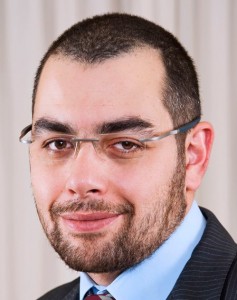
By Dr Mohamed A. Fouad
We all know it or seem to think we know it; we like to advance several pieces of evidence to suggest this infamous statement: “The Muslim Brotherhood’s popularity is going down the drain!” However, we never seem to follow this notorious assumption with an important question: So what?
If only the world of politics was a popularity contest, this very popular myth would actually hold water. Unfortunately or fortunately, depending on how you look at it, this notion is as close to a daydream as it is to reality. There are two main reasons why this statement will never materialise into any sort of progress or meaningful change, at least for now.
First, this much touted loss of popularity never seems to give rise to anyone else’s popularity. It is a loss in a vacuum. Let’s survey quickly the status of the opposition and how they have managed to make advances in light of the allegedly dwindling popularity of the Muslim Brotherhood.
The National Salvation Front (NSF) which has surfaced as the most eligible suitor for this loss in popularity is in a perpetual state of disarray. While former presidential candidate Amr Moussa alongside other leaders venomously rejects the notion that the NSF is crumbling, the front has walked away from several opportunities to score any significant advances or offer viable alternatives to the situation. Furthermore, this makeshift coalition is destined to be torn at the ideological level as it is comprised of all the currents of the political spectrum from leftists, to social democrats to conservative right-wingers. It is opposition by mere brute force rather than dialogue. Even the “force” part is questionable!
The other remaining forces of opposition such as the Salafis are dealing with their own demons. On one hand, they are seeing their support base splintered between the emerging Al-Watan Party and the Hazem Salah Abu Ismail supporters, just to list a few. Moreover, the group cannot lead a staunch opposition, which would risk them appearing to side completely with NSF, for fear of alienating their own support base.
Second, the true measure of popularity is determined by numbers at the polls. We spend all day long recounting the colossal missteps by the Muslim Brotherhood; in reality there are too many of those to count. But when it comes to polling, the Muslim Brotherhood and Islamist groups at large have secured five wins at the polls, including the March 2011 constitutional referendum, the 2011 parliamentary elections for both chambers, and the presidential elections and finally they were able to pass the new constitution. Time and time again their ground campaign machine has delivered them victory. While some people will debate the decisiveness of some of those victories as well as cast doubts due to polling irregularities, the facts do not change. No single party is capable of reaching the masses on such a broad scale as the Muslim Brotherhood. It was only former presidential candidate Ahmed Shafiq who came close to throwing a wrench in their campaign by mustering an equally efficient ground campaign and almost harvesting this unpopularity.
Politics firmly remains a game of numbers and mobilisation. You have to win an election to get a mandate. Winning elections is all about brute work and field campaigning rather than loud rhetoric, talk show appearances and meetings behind closed doors. There are not many options on the table but to engage in the electoral process to prove or debunk the myth. Many people have regrettably become disenchanted with this process because it has failed to deliver them the results they expected. The new reality is however not about who has the best vision but rather who can control the crowd. Or as in the great words of Alexander Woollcott: “I’m tired of hearing it said that democracy doesn’t work. Of course it doesn’t work. We are supposed to work it!”
Mohamed A. Fouad is a global expert on service quality as well as a political and social activist

